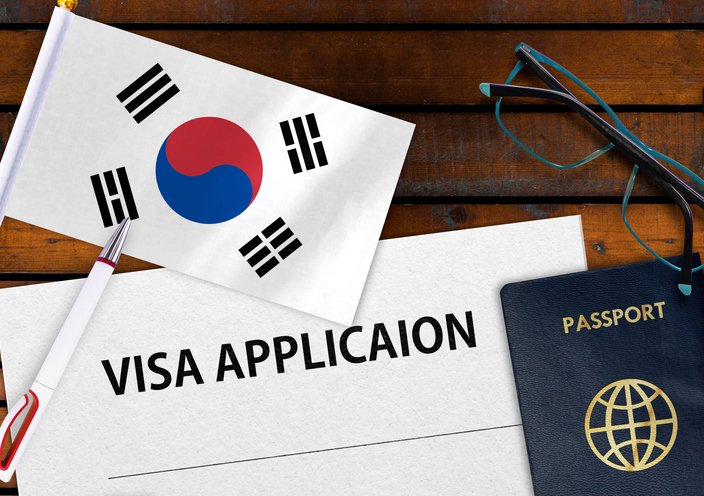Can a Foreigner Get a Job in South Korea? Exploring Opportunities in the Land of the Morning Calm
I. The Allure of South Korea
South Korea, often referred to as the Land of the Morning Calm, captivates people with its rich culture, advanced technology, and vibrant lifestyle. For many, the idea of living and working in South Korea is an enticing prospect. However, the question that often arises is, “Can a foreigner get a job in South Korea?” Let’s delve into the possibilities and challenges.

II. Understanding the Job Market
The job market for foreigners in South Korea has been expanding in recent years. The government has implemented various policies to attract skilled foreign workers and promote internationalization. This has resulted in an increase in job opportunities across different sectors, including technology, education, finance, and tourism.
While the job market for foreigners is growing, it is important to note that competition can be fierce, especially for highly sought-after positions. Fluency in Korean can be a significant advantage, as many companies prefer candidates who are proficient in the local language. However, there are also opportunities available for English-speaking foreigners, particularly in industries such as teaching English as a second language.
A. Booming Industries
South Korea boasts a robust job market, especially in industries such as technology, manufacturing, education, and healthcare. The country’s global influence has led to an increasing demand for foreign talent, particularly those with expertise in areas where Korea aims to excel on the international stage.
B. Language Barrier
While English is widely taught in schools and used in business settings, the language barrier can still be a hurdle. Many job postings may require proficiency in Korean, particularly for roles that involve extensive communication with local colleagues or clients. However, some multinational companies and industries are more English-friendly.
III. Job Search Strategies
When searching for a job in South Korea, it is important to adopt effective strategies to increase your chances of success. Here are some tips:
A. Network
Building a strong professional network is crucial in South Korea. Attend industry events, join professional organizations, and make connections through networking platforms.
B. Utilize Online Job Boards
Many companies in South Korea advertise job openings on online platforms. Utilize popular job boards and websites dedicated to connecting foreigners with job opportunities.
C. Consider Recruitment Agencies
Recruitment agencies can assist in connecting job seekers with suitable positions and provide guidance throughout the application process.
D. Prepare a Professional Resume
Tailor your resume to highlight relevant skills and experiences. Consider translating your resume into Korean to cater to local employers.
E. Learn the Language
While fluency in Korean is not always a requirement, learning the language can significantly enhance your job prospects and integration into the local culture.

IV. Navigating Work Visa Requirements
Before considering employment in South Korea, it is crucial to understand the work visa requirements. The most common work visa for foreigners is the E-7 visa, which is designed for professionals with specialized skills. To be eligible for this visa, applicants must have a job offer from a South Korean company and meet certain qualifications.
Other work visa options include the E-1 visa for foreign professors, the E-2 visa for English teachers, and the E-5 visa for foreign investors. Each visa category has its own set of requirements and eligibility criteria, so it is essential to research and consult with the relevant authorities or an immigration lawyer to determine the most appropriate visa for your situation.
A. E-Series Visas
Foreigners seeking employment in South Korea typically require an appropriate work visa. The most common for expatriates is the E-Series visas, with categories such as E-1 (Professor), E-2 (English Teacher), E-5 (Specialty Occupation), and E-7 (Specific Profession).
B. Visa Sponsorship
To obtain a work visa, individuals must secure a job offer from a South Korean employer. The employer becomes the visa sponsor, and the process involves submitting necessary documentation to the Korean Immigration Service.

V. Challenges for Foreign Job Seekers
A. Cultural Adjustment
Adapting to a new work culture can pose challenges. South Korean workplaces may have hierarchical structures, and understanding and respecting these dynamics is crucial for successful integration.
B. Limited Opportunities for Non-English Speakers
While English teaching positions are abundant, opportunities for non-English speakers can be more limited. Fluency in Korean is often a prerequisite for roles in areas like customer service, administration, and local marketing.

VI. Tips for Job Seekers
A. Learn Korean
Investing time in learning the Korean language can significantly enhance job prospects. While not mandatory for all positions, proficiency in Korean opens up a broader range of opportunities and facilitates better communication in the workplace.
B. Leverage Networking
Building a professional network in South Korea is vital. Attend industry events, join professional groups, and utilize online platforms to connect with professionals in your field. Networking can uncover hidden job opportunities and provide valuable insights.
VII. Conclusion
A Realm of Opportunities
In conclusion, while challenges exist, the answer to whether a foreigner can get a job in South Korea is a resounding “yes.” The country’s evolving job market, coupled with a growing appreciation for diversity, makes it an attractive destination for expatriates seeking new professional horizons. Understanding the job market, visa requirements, and cultural nuances will be key to a successful and fulfilling career in the Land of the Morning Calm.

FAQs About Working in South Korea
Q1. Can I find a job in South Korea if I don’t speak Korean?
While it is possible, the job options may be limited. English teaching roles are more accessible for non-Korean speakers, but learning the language can significantly broaden opportunities in other sectors.
Q2. What industries are hiring foreigners in South Korea?
Industries such as technology, English education, and multinational corporations actively hire foreigners. Skilled professionals in fields like IT, engineering, and international business are in demand.
Q3. How can I search for job opportunities in South Korea?
Utilize online job portals, professional networking platforms, and attend industry events. Networking is crucial in South Korea, and building connections can lead to job opportunities.
Q4. Is there a high demand for English teachers in South Korea?
Yes, there is a consistent demand for native English speakers to teach in schools, language institutes, and private tutoring. English teaching positions often come with competitive salaries and benefits.
Q5. Can I bring my family if I work in South Korea?
Yes, it is possible to bring your family to South Korea while working. However, certain visa requirements and documentation will need to be fulfilled for family members to accompany you.











